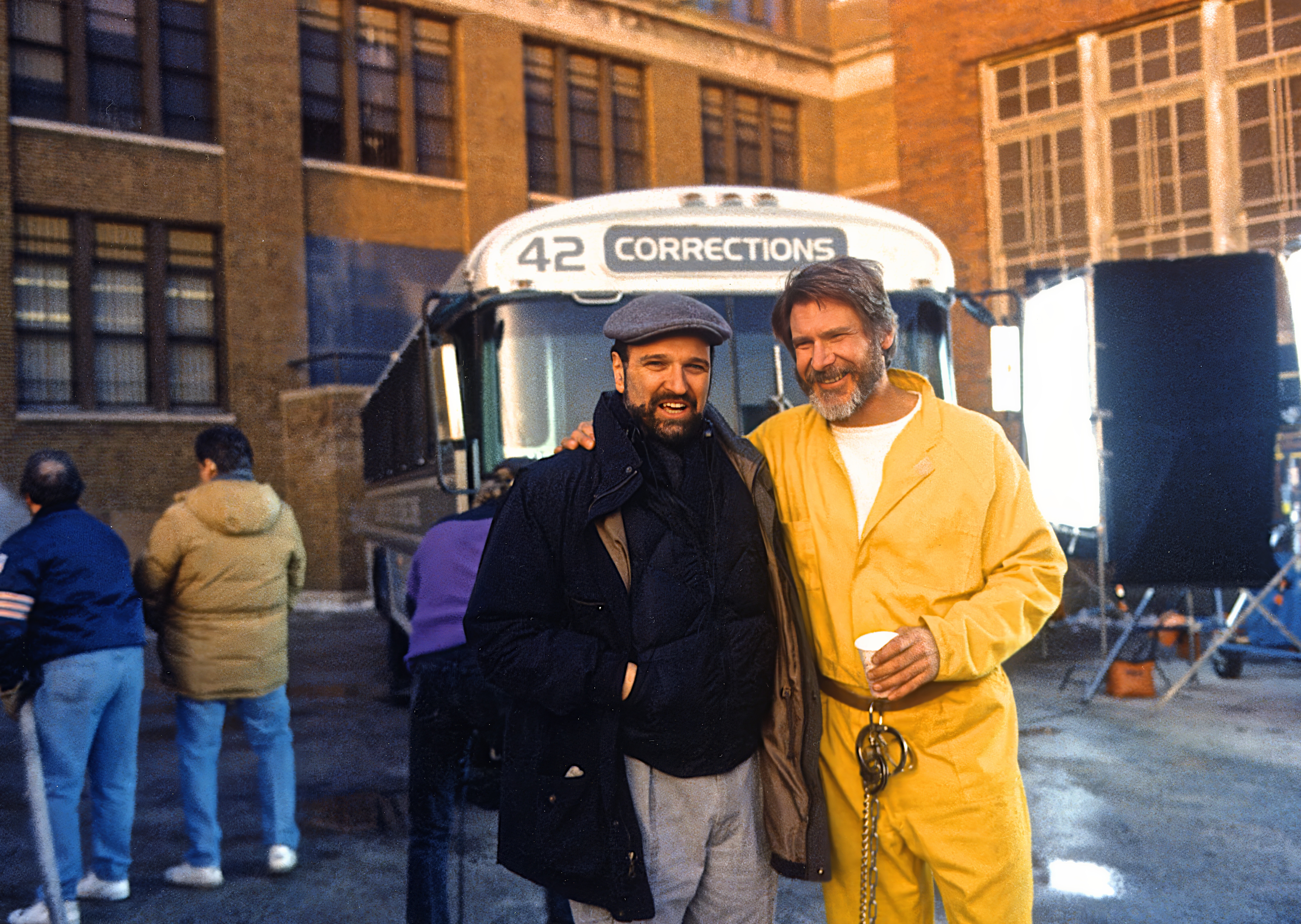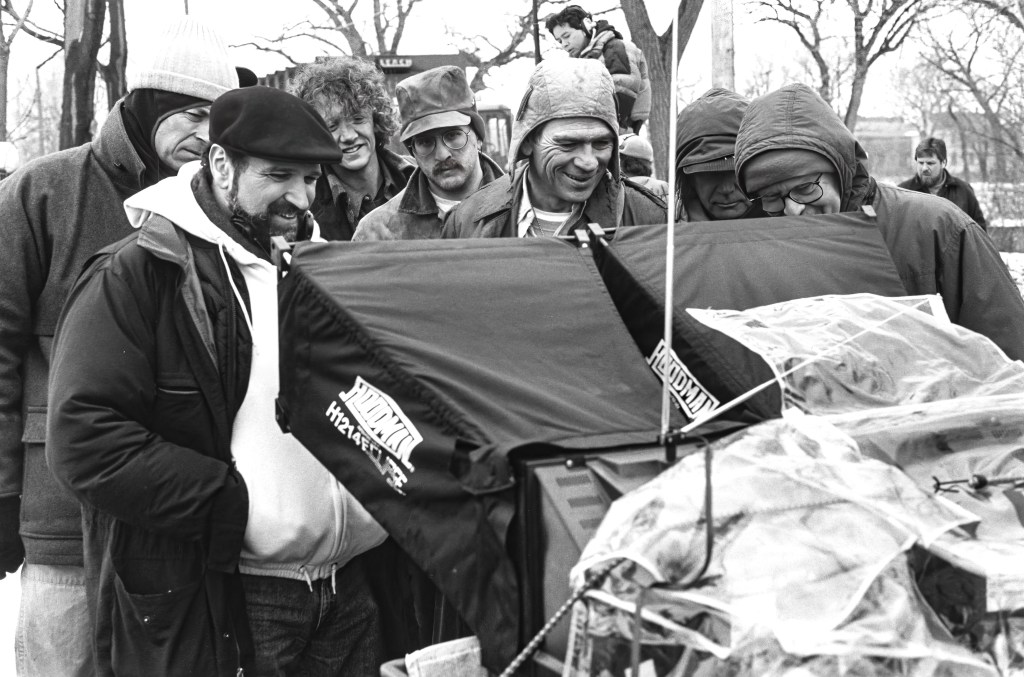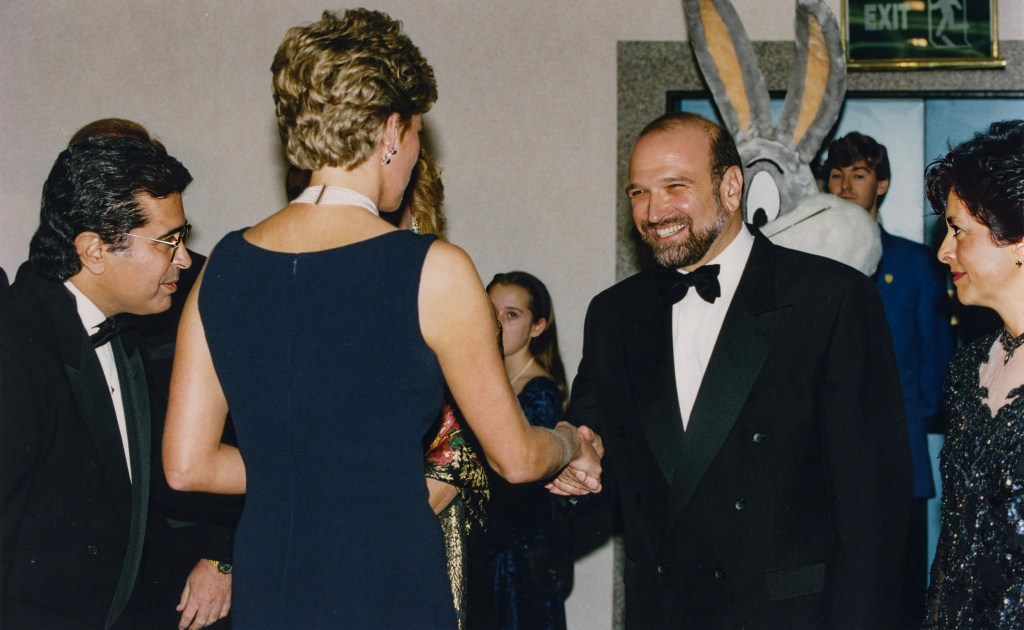‘The Fugitive,’ Still in the Running at 30
Santa Barbara–Based Director Andrew Davis Returns to the Spotlight in the 30th Anniversary of His Blockbuster 'The Fugitive,' with Screening/Q&A at the Riviera Theatre

Santa Barbara–Based Director Andrew Davis Returns to the Spotlight in the 30th Anniversary of His Blockbuster 'The Fugitive,' with Screening/Q&A at the Riviera Theatre

I had a major Chicago-on-the-brain-and-palate-moment last week as I sat down to break pizza with acclaimed film director and proud Chicago native Andrew Davis in the dining room of the scenery-blessed Riviera home he and his family have lived in for close to 40 years. The pizza in question: an uncommonly delectable deep-dish model that Davis has flown in from one of Chicago’s finest pizzerias, Lou Malnati’s. A vast sausage disc covered the entire pizza real estate, and I was left with a serious pizza afterglow.
But I digress, somewhat.

The pressing subject on this afternoon was Davis’s acclaimed and unabashedly Chicago-rooted 1993 film The Fugitive — the best-known and probably finest project in Davis’s 15-title filmography. For the film’s 30th anniversary, Davis has overseen a new 4K UHV remastered version, screening at the Riviera Theatre, September 8-14. Following the screening on Friday, September 8, Davis will engage in a Q&A with Roger Durling, executive director of the Santa Barbara International Film Festival.
The recent buzz over The Fugitive’s remastered return includes an extensive Rolling Stone piece, and Davis notes, “What’s really amazing is, there’s all these young critics who are giving us new reviews. They said they saw the films when they were kids with their parents.”
A radically reworked adaptation of the long-running 1960s TV series, Davis’s The Fugitive is a deft balancing of action cinema, socio-political commentary, and propulsive storytelling. It also happens to be one of the great films shot in and about Chicago. Although Davis frequently shoots in Chicago, Chicago-centrism truly rules here.
Essentially, The Fugitive was made possible by Harrison Ford, enough of a fan of Davis’s previous film Under Siege to approach the director with the project, studio support and a script in hand. The problem was that Davis deemed the script “terrible.” He recalls, “Harrison had committed to doing the movie, but I didn’t. He said, ‘Oh, we’ll fix the script.’” The fix-it process included impromptu creative changes during filming, which adds an appealingly loose ensemble character to the film, alongside its taut thriller paces.

“Everybody contributed,” Davis remembers. “Harrison and Tommy [Lee Jones] and myself worked with the bones of what was on paper. And Jeb Stuart [who got co-screenwriter credit with original writer David Twohy] was back at the hotel with the producers trying to come up with stuff. And yet it’s taught as one of the classic, perfect screenplays,” he laughs.

So improvisation was allowed and/or encouraged?
Davis noted, “Tommy didn’t call it improvisation. We would work out what we had to do, write it down, and shoot it. I had a lot of freedom to do what I wanted to do. I had a great cast, a lot of freedom, and basically the support of a studio, ’cause they didn’t know what was going on. They just let us keep shooting it.”
The film ended up being a thrilling, thoughtful cat-and-mouse tale in which Harrison’s Dr. Kimble — on the run after being wrongfully accused of murdering his wife — is chased doggedly by U.S. Marshal Sam Gerard (Jones, in a role that won him an Oscar and launched his career into Hollywood’s upper echelon). Davis suggests that “the basic spine was about this unjustly accused man, as in Les Misérables.”
One of the factors making The Fugitive real and relevant 30 years later is its strong anti-pharma story angle, which resonates with the post-Sackler/opioid crisis era. Mixing action cinema with political activism is a running theme in Davis’s oeuvre. As he recounts, for example, “Above the Law and Code of Silence were about Iran-Contra. The Package was about disarmament and cover-ups.”
Never one to sit idly by, Davis, at 76, has finished a novel, Disturb the Bones, to be published soon. “I think it would make a great movie,” he says a bit ruefully, “but it’s so hard to get a movie made these days.” His most recently completed film was 2019’s charming documentary Mentors: Tony & Santi.

Meanwhile, smaller and more personal left-of-Hollywood projects in the Davis filmography are poised for rebirth. His classic chronicle-of-a-band, 1978’s Stony Island (another extremely Chicago-centric film) has its 45th anniversary re-release party in Chicago this November, followed by a release on streaming platforms.
Closer to his current home, Davis’s decidedly Santa Barbara–centric (and delightfully eccentric) 1995 film Steal Big, Steal Little was a personal project made possible by the blockbuster success of The Fugitive. As Davis describes the film, finishing off the last bite of pizza, “It is a movie that people didn’t understand. But it really holds up because it’s about greed and immigration and rich and poor. And [the late] Alan Arkin’s fantastic in the movie. I think it’s one of his best performances. And it looks gorgeous.”
He adds, “The three films I own — Mentors, Stony Island, and Steal Big — are the ones I want to try to get out to the world. You make movies and they become your kids.”
Please note this login is to submit events or press releases. Use this page here to login for your Independent subscription
Not a member? Sign up here.
You must be logged in to post a comment.